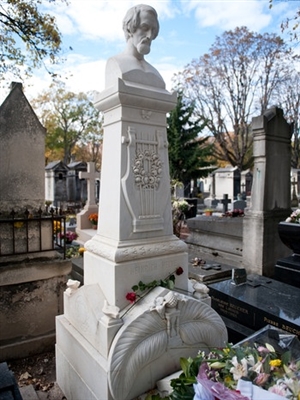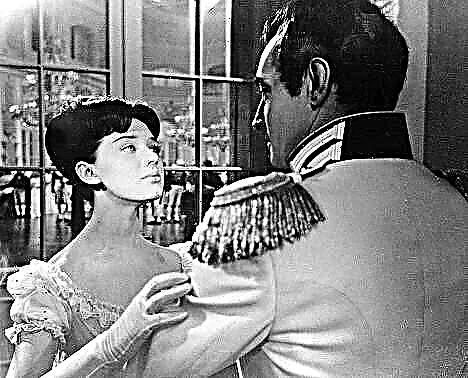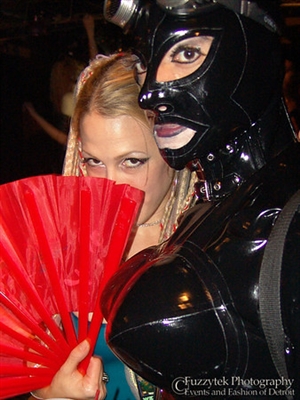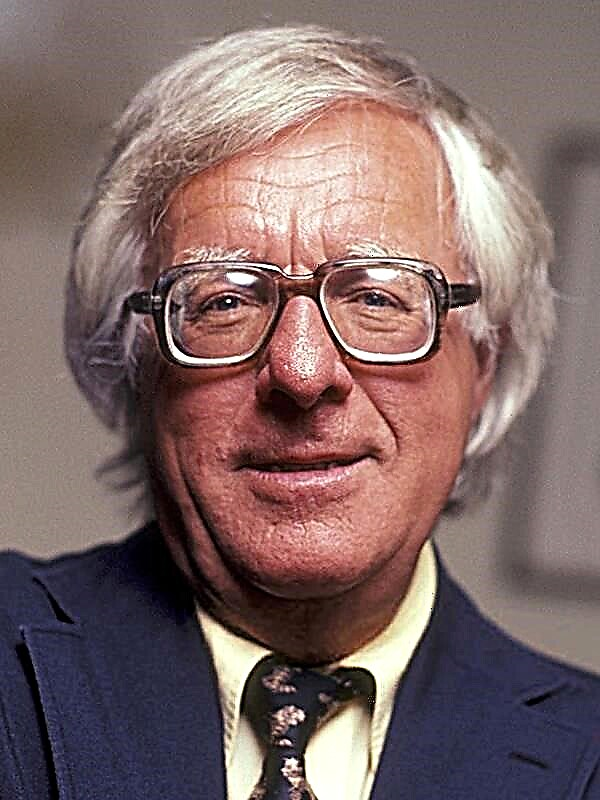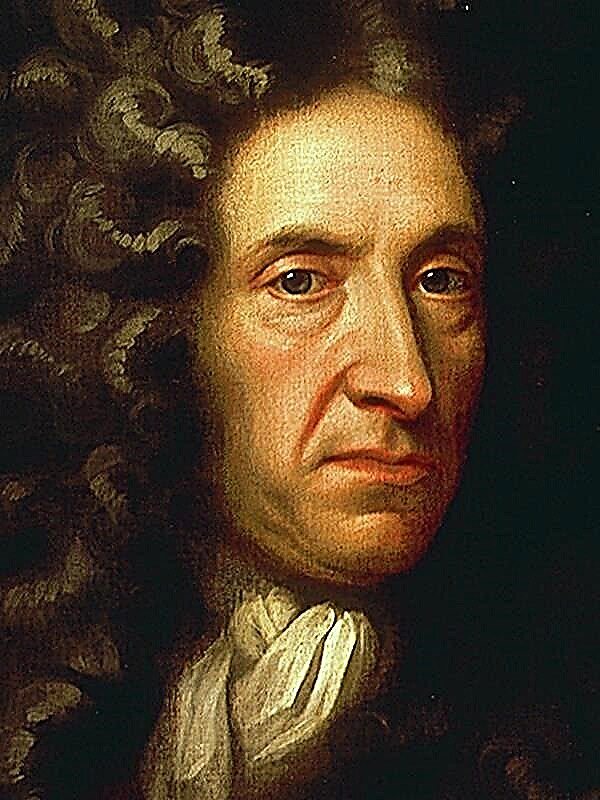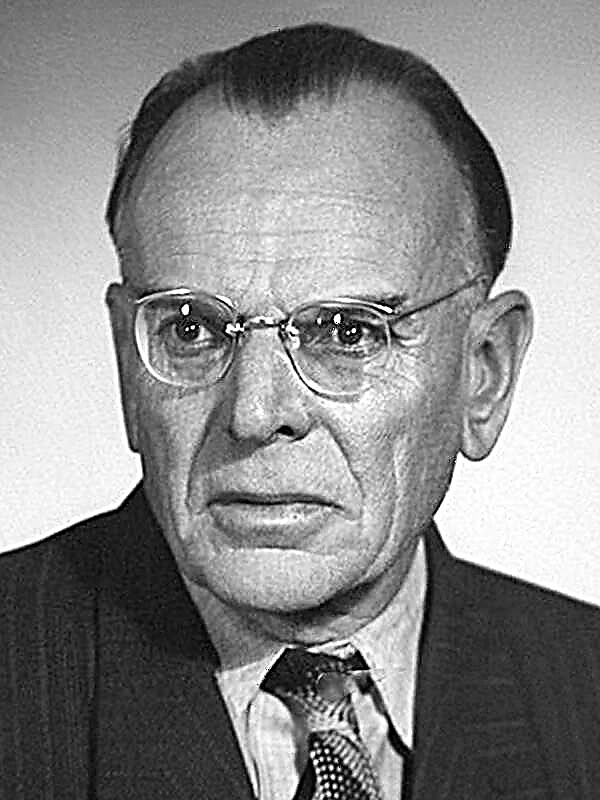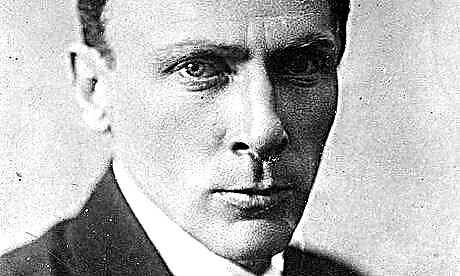: The gangster government deprives large entrepreneurs and talented scientists of the possibility of development, thereby destroying the state. The best minds unite and leave the doomed society.
Part one. No contradictions
Chapter 1. Theme
The largest New York railway company is heading for collapse - the dilapidation of the railway in one of the most profitable areas leads to the loss of profitable customers, huge losses and the gradual displacement of the company from the transportation market.
Company President James Taggart ignores these facts by signing contracts with unscrupulous suppliers. He invests in deliberately unprofitable areas and believes that competitive advantages are obtained by relations with lawmakers and politicians.
His sister, the vice president of Dagney, understands the catastrophic situation and decides to carry out an urgent reconstruction of the railway. In order to save the company, she terminates the fraudulent contracts concluded by her brother, deciding to purchase rails from a new alloy, which was invented by steelmaker Reharden.
James is outraged by his sister's plan - the new metal is not approved or recognized by anyone. Dagney takes full responsibility for the reconstruction of the railway.
Chapter 2. The chain
The production of the new metal was “the result of a ten-year-old stubborn quest for the mind” of steel magnate and inventor Rearden.
Buying out ruined steel mills, Henry always made their production profitable. For the past ten years, he has been obsessed with one idea - to invent a new metal that surpasses steel in all respects. The alloy was much stronger than steel, cheaper and more resistant to corrosion.
The chapter ends with a description of the family of this hero - a cold wife, a stale mother and a helpless brother. Henry feels nothing but indifference to them. He gives his wife a bracelet made of his own alloy, but the spouse compares the gift with the "chain on which he holds us all."
Chapter 3. The top and bottom
Taggart meets with "people from Washington." Lobbyists are preoccupied with the upcoming reconstruction of the railway - the company’s orders went to the man who got "almost a monopoly on natural resources that ultimately belong to everyone." Competitors consider it unfair if Reharden will increase production and make profit alone. They decide to do everything so as not to "allow one person to destroy an entire industry." James enlisted the support of the “people of Washington,” promising them assistance in the destruction of Reharden.
Dagney takes all the company's capital out of the unprofitable Mexican line, deciding to invest them in new construction. She does not understand what caused the construction of this road - the copper king D’ Anconia did not provide any information about the mines. Many businessmen took his word for it, investing millions in the project. Her brother, becoming president, "made it clear that his friends in Washington, whose names he never gave, are very interested in building this line." Mines were under development, the road did not pay for itself, and the company incurred losses.
Chapter 4. Unshakable prime movers
The copper mines and the unprofitable railway line are nationalized by the Mexican government. At a meeting of shareholders, James states that he managed to “remove valuable equipment and replace it with obsolete, as well as remove or replace everything that is possible,” while retaining the company's capital.
Lobbyists pass a law “Against predatory competition,” prohibiting the activities of several companies on the same territory - “it’s not profit, but service to society is the primary task of the railways.” The law destroys healthy competition and the deaths of many successful companies.
Dagney is outraged by such a policy, since “nothing can justify the extermination of the best. A person cannot be punished for ability, for the ability to do business. If this is true, then it is better for all of us to start killing each other, since there is no justice left in the world. ” She does not understand the absurdity, wondering: “If the rest can survive only by destroying us, then why should we even want them to survive?”
The large oil industry man Wyatt demands that it resume transport, otherwise his oil business and the entire industrial area will decline. The heroine decides to speed up the reconstruction and shares her plans with Rearden, who also wants to "save the country from the consequences of their actions." Attending the construction of the road, they feel like “prime movers” saving the world.
Chapter 5. Apogee of the clan D’ Anconia
Copper King Francisco D’ Anconia has always been phenomenal in all areas. He received the best education, studied science, spoke several languages and traveled around the world. At twenty, Francisco became the owner of his own factory. Everything that he undertook brought furious profits.
But then D’Anconia changed - he squandered his fortune, showing off on the pages of newspapers. The fame of a swindler and a playboy was entrenched in him. These rumors were confirmed by the story of the Mexican mines, when all the businessmen who believed him lost millions.
Dagney understands that D’Anconia knew - “mines have no value and are absolutely hopeless.” She demands from the old friend reasonable explanations, but he only grins at the burnt out businessmen who “believed that it was completely safe to profit from my mind, believing that my only goal was wealth”. The millionaire says that money is flowing “not to those who produce the best, but to the most corrupt. By the standards of our time, it is the one who creates the least who wins. ”
Chapter 6. Nonprofit
Reharden's wife hosts a party in honor of the anniversary of their marriage. The guests are vigorously discussing the law “on equal opportunities,” which is rumored to be approved at the state level. During the crisis, this bill will prohibit "one person from owning many enterprises in various industries, while others have nothing." The society agrees with this: “the fact that a handful of entrepreneurs concentrated all natural resources in their hands, thereby leaving no chance for others, is detrimental to the country's economy.”
Henry does not believe that the law will be accepted. According to him, “a person should do what is reasonable, and not crazy, that a person should always strive for the right, because reality ultimately always prevails, and meaningless, wrong and unjust has no future, cannot lead to success, can’t do anything - only destroy himself. ”
At the reception, there’s D’Anconia, who voices the “moral commandments of our time”:
- Selfishness, personal interests and the pursuit of profit are vicious.
- The goal of any enterprise is not production, but the welfare of workers
- Production exists thanks to workers, and not to the parasite master
- When hiring, you need to take into account not the employee’s abilities, but his needs, because “in order to receive a benefit, it is enough to need him”.
Dagney hears the legend of John Gault, who "found Atlantis", but does not attach importance to this myth. Amazed by the beauty of the metal bracelet, she asks Rearden's wife to give it to her in exchange for a diamond necklace.
Chapter 7Exploiters and Exploited
Despite the huge difficulties on the part of lobbyists, Dagney and Henry continue the reconstruction of the railway. They are supported by the oil industry Wyatt, who is interested in restoring the line.
Officials offer Henry to remove metal from the market or sell the rights to it for any money, but he refuses. Government Institute officially recognizes the metal is dangerous for use. Dagney meets with Dr. Stadler - one of the most outstanding minds of our time, heading this institution. She wants the scientist to refute the false allegations about the alloy, but the physicist refuses. He explains to her that “truth and reason are inaccessible to people. They are deaf to them. Reason against them is powerless ... If we want to achieve something, we must trick people into letting us achieve this. Or by force. It is impossible with them otherwise. They do not understand another language. We cannot count on the support of reasonable endeavors or high spiritual aspirations. People are vicious animals, greedy predators chasing after profit and indulging their whims. ”
Dagney establishes his private company and calls the road under construction the John Gault Line. Lobbyists claim the “Equal Opportunity Act,” but the heroes are determined to fight for the road while continuing to confront the “bandits and their laws.”
Chapter 8. The John Gault Line
The adopted law forces Reharden to sell most of his enterprises. Despite this, he delays the payment of money by Taggart for the delivered metal.
Harassment is gaining momentum - the public and the press are spreading information about the upcoming disaster if the line is launched. Many "committees of disinterested citizens" require a ban on the operation of the railway.
Despite the fierce pressure, the construction of the line is successfully completed. At the opening ceremony, Dagney delivers a speech stating that "John Gault is us."
The composition triumphantly arrives at the final station, symbolizing the victory of the main characters in a fierce struggle. They celebrate success at Wyatt's home, which has been supporting them all this time.
Chapter 9. The Holy and the Corrupted
The success of the Golt Line has a beneficial effect on the economic situation of the region - many companies are moving to a promising and developing state. James feels humiliated, but accepts congratulations as a winner - when his sister returns to the post of vice president, the new line becomes the property of his company.
During a joint vacation, Dagney talks about making engines for trains. Rearden recalls a bankrupt company that once produced the best engines.
They get to an abandoned factory, where they find an engine that has no analogues in the world. Dagney understands that this invention can change the whole world and decides to restore it. But for this you need to find the genius who created this miracle.
Chapter 10. The Torch of Ellis Wyatt
Dagney hides the engine and continues the search for an inventor.
The factory, where the brilliant inventor worked, went bankrupt - "everyone at the factory, from cleaners to the director, received the same salary - the most that at least." All production participants collectively determined the abilities and needs of each in the division of the enterprise’s income.
She finds the great philosopher and thinker Exton, who was the teacher of many gifted people, but he only explains that “based on the essence and nature of being, there are no contradictions. If you find it unbelievable that the invention of a genius can be thrown among the ruins, and the philosopher may want to work as a cook in a cafe, check your starting points; you will find that one of them is false. ”
Lobbyists are demanding a reduction in the speed and number of cars on the new line. They continue to put pressure on Reharden, forcing him to reduce metal production. Henry does not give up trying to save the production.Dagney turns to his brother for help, persuading him to stop the destructive actions of the "bandits from Washington", but he refuses.
In an effort to limit rail transportation and metal smelting, the "bandits" are pushing through a law in which "enterprises of the country, of any size and kind of activity, were forbidden to leave their states without special permission."
Suddenly, Ellis Wyatt disappears. Having destroyed his oil business before this, he leaves his message to the world - “I leave the field as I found. Pick it up. It is yours. ”
Part two. Or or
Chapter 1. The Master of the Earth
The country is in crisis. It is suggested to the public that reason is prejudice. The remaining scientists in the country develop the thesis that "the mind is not able to comprehend the nature of the universe." Thinking is “an illusion generated by the work of glands, emotions, and, ultimately, the contents of your stomach.” A person should not rely on logic and the search for meaning is absurd.
After Wyatt's disappearance, small oil producers are trying to organize oil production, but equipment manufacturers and railway companies are inflating frantic prices. As a result, "an entrepreneur in the country is not able to buy oil at a price equal to the cost of its production." Producers who “had friends in Washington” continued to live on state subsidies.
Dagney is trying to "keep trains moving in areas where production was still warm." The company exists on subsidies that Washington provides, but they "significantly exceeded the profits that freight trains brought from the country's still active industrial regions."
Despite the lack of talented scientists in the country, she finds a physicist who has decided to restore the engine.
Rearden continues the struggle, trying to defend the right to own metal. His factory is controlled by officials. Producers in need of its metal continue to go broke. "The owner of the Earth" does not give up, but his "famous ability to find any way out to support production, this time refused him."
Chapter 2. The aristocracy of doom
Dagney notes that the disappearance of successful people is associated with mysterious people who contribute to the collapse of the economy. Cities are dying, factories are closing, and it seems that "the destroyer is walking silently around the country."
Rearden supplies his coal miner Deneger with his metal, risking ten years in prison for breaking the law.
At the wedding of James Francisco, D’Anconia calls the existing society "an aristocracy of blat." He says a monologue about the essence of money:
- The existence of money is impossible without people who can produce. In the hands of loafers, they lose their meaning and cease to be a medium of exchange.
- Paper money is a fake replacing gold. Only gold is a real “symbol of trust, a symbol of your right to a part of the life of people who can produce”.
- Wealth is the result of an honest person’s ability to think, and as such, “I call someone who realizes that he does not have the right to consume more than he produces.”
- Money is based on the right of every person to dispose of the fruits of his mind, body and labor. Where there is reason, there "the person with the highest development and the rationality of judgment" wins.
- The love of money means that "it is they who awaken the best strengths, aspirations and desire in you to exchange your achievements for the achievements of the best of people."
- Saving money requires "the highest abilities, courage, pride and pride." Everything is lost by those who “do not feel their moral right to their own money”, feeling guilty for their capital.
- The company is doomed to perish if “relations in the company are not carried out on the basis of the voluntary consent of the parties, but on the basis of coercion; if in order to produce, permission is required from those who have never produced anything; if money flows in a river not to those who create wealth, but to those who create bonds; if those who labor become poorer every day, and extortionists and thieves become richer; if honesty and integrity are tantamount to suicide, and corruption flourishes. ”
- America was a country of “reason, justice, freedom, creative and production achievements”, in which money was untouchable capital. Only "there is no room left for bandits and slaves, here for the first time a man has appeared who really creates blessings, the greatest hard worker, the most noble type of man - the American capitalist."
The guests are shocked by the monologue of Francisco. Before leaving, he informs Rearden of his intention to destroy his business.
Chapter 3. Explicit blackmail
Authorities blackmail Reharden after learning of an illegal deal with a coal industry. A government official persuades him to sell a batch of metal to a state organization that had previously banned the use of alloy. Henry asks why authorities issue such laws. To manage people, the bureaucrat answers, you must first "enact laws that cannot be implemented, enforce, objectively interpret, and you create a state of violators of the law and profit from guilt." Businessmen are charged, but coal tycoon Deneger drops everything and disappears.
D’Anconia comes to Rearden, convincing him to give up the fight, because the Atlas, trying with all its might to keep the world "must straighten its shoulders." Henry refuses to give up.
Chapter 4. Consent of the victim
The country is plunging into chaos, production is steadily falling, people are quitting work. Dagney seeks to save his company, trying to "collect worn out rails from abandoned tracks and patch the main line." Her work smooths out the destructive actions of James, who prefers to solve all problems through Washington. The cause of the crisis, according to the press, is the "selfishness of wealthy industrialists" who seek profit.
At the trial, Reharden gives a speech in which he sets out his principles:
- Work “exclusively for your own benefit”, which you get from selling your products to people who want to buy it.
- Do not produce "in the name of their good at their own expense, but they do not buy in the name of my good at their own expense."
- Do not sacrifice your interests for others, just as others do not sacrifice their own for your sake. Collaborate "on equal terms by mutual agreement and for mutual benefit."
- To be proud of our wealth and make money “by our own work, through free exchange and with the free consent of every person with whom I deal.”
- Do not pay anyone more than the cost of his services. Do not sell your product for less than it costs.
- Do not feel guilty for being able to do something better than most people; that your work is more important than the work of others; that many are willing to pay you for the best product; that you are more capable, successful and have money.
No good, the businessman concludes, “cannot be achieved at the cost of human sacrifice,” when a successful and strong one sacrifices himself for those who want to survive at his expense. Fearing public discontent, the court sentenced him to a suspended sentence.
Chapter 5. Account Exhausted
The country continues to be ruled by the language of destructive laws. The paralysis of cargo transportation leads to the ruin of many companies that did not wait for the necessary supplies. Workers are demanding higher wages, despite a halt in production. Riots and riots begin.
The collapse of the coal industry leads to interruptions in energy supply throughout the country - "there was no firewood, there was no metal for the manufacture of furnaces, and there were not enough devices for installing heating systems." The government is introducing coal standards for heating homes.
Revival is observed only "in the entertainment industry" - hungry citizens at the last resort visited theaters.Those who “shouted with joyful gloating that a person is not able to conquer nature, that science is a deception, that the mind was defeated, that a person is punished for his sins, pride and faith in his own mind, are intensifying.” Only faith, love and sacrifice can save the country.
The Washington guys are forcing James to raise workers' wages and lower freight rates. As a result of these actions, a decision is made to close the Gault line.
Chapter 6. Wonderful Metal
President Thompson introduces a state of emergency. "Bandits from Washington" adopt a decree on tight control of the economy to establish "complete stability". All workers were assigned to jobs and could not quit. Enterprises pledged to continue working, and the owners were forbidden to close and move them under the threat of confiscation. Patents and copyrights for inventions were transferred to the state, about which the owner signed a gift certificate. Any inventions, introduction and production of new goods were prohibited. At the current level, production was frozen, as well as “wages, prices, dividends, interest rates and other sources of income”.
Politicians are convinced that "great people are created to serve the little ones." Only a planned economy can lead the country out of the crisis.
Rearden is forced to sign a certificate, which "established that he transferred to the people all rights to the metal, which will be called a wonderful metal, this name was chosen for him by representatives of the people."
Chapter 7. Moratoria on the mind
The adopted decree further strengthens the crisis. People who run away from work are declared deserters and imprisoned. Specialists in the industry are replaced by mediocrity, fearful of responsibility.
The government gives the right to manufacture the "wonderful metal" to its industrialist, but the pirate Ragnar Danneschild blows up all the plants of this manufacturer. Having handed over to Rarden the ingot of gold, he explains that he seizes the values taken by force "from some people in order to be transferred to others who did not pay for this good and did not deserve it." Selling the captured goods for gold, the pirate returns it to those from whom they were stolen. Danneschild hates Robin Hood - "he was engaged in charity, using wealth that he never owned, giving out goods that he did not produce, becoming a symbol of the idea that need and not achievement is a source of rights."
The largest accident in the history of the country occurs on the railway.
Chapter 8. By the Law of Love
Upon learning of the disaster, Dagney is trying to establish work to restore the road. She cannot find specialists working in the company - everyone quit. There is no repair equipment in the warehouses - everything was stolen by the “guys from Washington”.
Workers and office workers drop trains and disappear - "without warning and for no apparent reason, this is like an epidemic, the disease suddenly affects people and they disappear." This form of protest exacerbates the crisis, but the authorities are "indifferent to whether at least one train or blast furnace remains on the ground."
Dagney has a choice - to stay or leave, allowing the country to die.
But she decides to fight, while "there is the slightest opportunity to stop the last wheel - in the name of the human mind."
Chapter 9. A face without pain, without fear and without guilt
D’Anconia persuades Dagny to abandon the fight, because the future will soon come and "the bandits will disappear from the face of the earth." Francisco says that all the ways will lead to Atlantis anyway.
The heroine receives a letter from a physicist involved in starting the engine. The scientist refuses work, because "he will not give anything that was created by his mind, to the world, which treats him like a slave." She sets off, deciding to stop him at all costs.
Chapter 10. Dollar Sign
On the road, Dagney encounters a tramp who once worked at a motor factory where the heroes discovered an engine. He tells her the story of the ruin of the enterprise.
The owners introduced a new plant management plan, which "provided that everyone would work according to his own abilities, and his work would be paid according to his needs." But whose abilities or needs are most important? For this, everyone gathered and voted, "because when everything is in one boiler, a person is not allowed to determine his needs." The team began to be called the "family", which allocated funds according to needs and determined the abilities of each. When productivity began to plummet, they decided that "someone worked not in accordance with their abilities." The best workers “were sentenced to overtime every evening for six months. Overtime and free, because they paid not on time and not for the work done, but only for the need. " All successful and talented people began to hide their abilities and work worse, because "they will pay the salary, whether it is earned or not, but they will not give anything above the apartment and food ration, no matter how hard you try."
The only production indicator that grew was the birth of children - “people had nothing more to do, the child became not their burden, but the burden of“ family “. In fact, a child's allowance was a great chance to get an increase in wages and a brief respite. Or a child, or a serious illness. ”
Why work when "every born creature can at any time present you an invoice for any amount - people whom you will never see, whose needs you will never know, whose abilities or laziness, decency or fraud you can’t recognize."
The Tramp mentions a talented engineer named John Gault, who vowed to "stop the engine that drives this world."
Dagney gets to the airfield, from which the plane flies away, taking a talented scientist. She chases this plane and gets into a plane crash.
Part three. A is A
Chapter 1. Atlantis
As a result of the crash, Dagney finds himself in a valley where he meets John Gault. There she meets all the successful people who have been missing recently. Atlantis represented the "placer of small modern buildings." The symbol of this place was "a three-foot-high dollar sign made of pure gold that floated above the valley."
All the inhabitants of the valley work for their own consumption, and not for the profit of bandits. The market is formed by producers, not consumers - "if I produce oil at a lower cost, I demand less for it from the people I sell it to get what I need from them." Each trades achievements and abilities, not needs. All are free from each other, but develop and grow together. It is forbidden to pronounce the word "give." Each manages his own life and spends it on development and improvement. Gault explains to the heroine that this strike is of “people of the spirit,” who are considered ghouls in the world and tortured. This is a revolt of “will and reason” against ignorance, violence and animal instincts of mankind.
Chapter 2. Utopia of money-grubbing
In the valley, Dagney meets Francisco. He persuades her to join the strike. All the inhabitants of Atlantis want her to stay. The heroine promises to think, but when she finds out that Gault plans to destroy the railway, she refuses the offer. Gault takes her word that she will not tell anyone about the existence of the valley. After that, he returns Dagney to the world.
Chapter 3. The antipode of acquisitiveness
The situation in the country is becoming critical: the economy is practically not working, no one wants to take any responsibility on themselves, no one is producing anything. The remainders are distributed by decree of the state in which the power belongs to the bandits.There is no healthy competition, all remaining entrepreneurs depend on the whim of officials. James persuades his sister to reconcile with the existing situation.
The country's president invites Dagney to speak on the radio to reassure the public. She speaks, but instead of lying, tells the whole truth about the destructive policies of the government.
Chapter 4. The antipode of life
James is confident that his connections with politicians will make him the richest man in the country. His wife finds out that he always appropriated the achievements of other people, deceiving others. She calls him a “spiritual bandit” who wants undeserved love, grandeur and admiration. Everything that such people have belongs to them undeservedly. All this, she believes, such bandits robbed of those who are capable of them.
Unable to bear the whole truth revealed, James's wife commits suicide.
Chapter 5. Adherents of the Common Good
Dagney tries to save the railroad, but theft and corruption reign everywhere. All reserve stocks are sold by small bosses to resellers who had “powerful friends in Washington.” Theft and robbery were becoming the norm. In business, a new type of entrepreneur predominates - a businessman who lives on the principle of “urvy - run”. He "did not build a workshop and did not install equipment, he did not create anything, but he had valuable capital - acquaintances, communications and blat." Such vultures excelled everywhere.
Humanist slogans are proclaimed, but in reality, "everyone devoured a neighbor and became a victim, if not his neighbor, then his brother ... everyone devoured himself and screamed in horror that some incomprehensible evil force was destroying the world." The country plunged into the abyss of looting, devastation and famine.
Chapter 6. Song of the Free
A handful of people holding power blame the owners for everything and continue to tighten control over all resources. All companies are managed from Washington. They are trying to do this with the steel industry. Reharden is offered to establish steel production without any restrictions, but to invest all the revenue in the state’s common boiler. All profits will be distributed by the government and "each company will be due payment in accordance with its needs."
Rejecting the offer of officials, Henry is witnessing an attempt to seize his own factory by government provocateurs. This is the last straw, and he joins the "striking" industrialists, leaving their factories.
Chapter 7. “Listen, says John Gault!”
Outbreaks of violence and robbery are occurring throughout the country. Entire areas were dominated by rebels who “took away all property that could be taken, declared everyone responsible for everyone and everything - and died within a week, having lost their miserable prey, full of hatred for everything and everyone, in chaos where there is no there were no laws besides the law of brute force. ”
Given the situation, the president plans to speak to the country on radio and TV in order to encourage people. But John Gault intercepts the broadcast and delivers a speech in which he outlines the philosophy of striking creators:
A world that denies reason and thought is doomed to animal existence and death. Only man has consciousness and is “aware of the existing”. The basis of all intelligent existence and knowledge is the formula - "A is A". Truth is a recognition of reality, and reason is the only means of knowing the truth. Refusal of thinking means the death of the existing and "an attempt to destroy reality."
An intelligent person obeys only logic, which allows to establish truth. Those who deny logic deny reality. Logic is the art of consistent identification, which kills any contradiction.
Morality must be rational and based on a reasonable choice of a person. Morality is not imposed, and the mind does not obey the commandments of others.
The only moral goal of human life is the pursuit of happiness. The criterion of morality is human life - “all that is good for the life of a rational being is good; and everything that destroys it is evil. " One must be able to enjoy life, receive satisfaction from one's own existence, and live by the "judgments of one's mind."
For a happy life, one must adhere to the following virtues: rationality, independence, integrity, honesty, pride, creativity, justice.
Any demand for help should be understood as a “signal indicating a cannibal”. A person can be helped only on the basis of his merits, his efforts to independently cope with his misfortune, his rationality, or on the basis that he has suffered unjustly. Willingness to help is justified if "you experience selfish satisfaction, realizing the value of the asker and his struggle."
For those who are fighting, Gault offers not to support those who are destroying them, not to try to “win the game, the rules of which are established by the enemies”, not to ask anything from the bandits, not to join their ranks, since “you have to rob your neighbor” , do not strive for success, benefit and prosperity “at the cost of assigning your right to life”, live your own mind, develop your talents and knowledge, do not feed parasites with achievements, agree to isolate yourself from their world, leading a “fruitful own life”, fight for the banner reason with those who share your beliefs.
In a constructive society, creators-dealers who “do not build their happiness on the favor or misfortune of others” are at the helm. The dealer earns himself, does not sacrifice and does not give alms. He does not expect someone to pay for his failures.
In a rational society, government is needed only as a “tool of human self-defense” from external enemies (army), internal criminals (police) and from attacks on private property (court). All other institutions are parasites that profit from humans.
People must fight "for the supremacy of reason." Everyone should remember the words of the oath that "I will never live for the sake of another person and I will never ask and will not force the other person to live for me."
Chapter 8. The Selfish
Gault’s performance ruins all the government’s plans. The people are outraged, prisons are full, factories and factories are burning. Trying to avoid losing power, the president instructs to find a genius. The philosopher is tracked down and arrested. The president offers him to cooperate with the government, but he refuses. At gunpoint he is forced to speak on television. Gault should read the prepared text, but at the last moment he utters one sentence into the camera: “Get out of the way!”
Chapter 9. Generator
Desperate to persuade Gault, the president’s entourage takes him to the torture bunker with electricity. During bullying, the generator burns out due to voltage. Dumbfounded bandits leave the bunker, in which "next to the burnt dead generator lay, connected hand and foot, a living source of energy."
Chapter 10. In the name of all the best in us
Gault's companions attack the bunker and free their leader. Dagney joins the strikers. Flying to Atlantis, they see the darkness and devastation in which the country plunged under the wing of an airplane. The book ends with a description of how the characters plan to return to the world:
“The path is clear,” Gault said. - We are returning to our world. He raised his hand and traced a dollar sign over uninhabited land. ”

